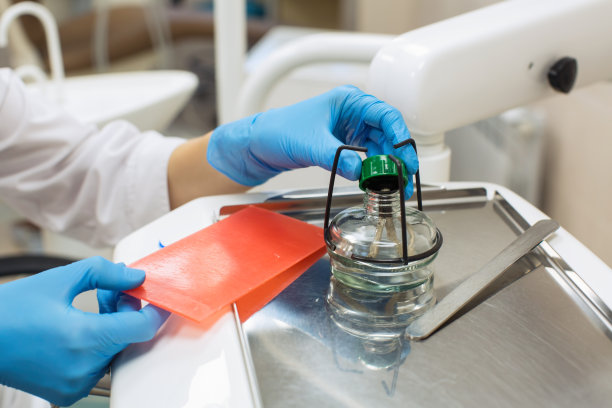Summary: Periodontal disease is a common yet serious dental condition characterized by inflammation of the gums and supporting structures of the teeth. This article delves into the causes of periodontal disease, its detrimental effects on oral and overall health, and effective prevention strategies. Understanding these elements can lead to better oral hygiene practices and a healthier smile. By recognizing the importance of early detection and treatment, individuals can take proactive steps to maintain their dental health. The article emphasizes that awareness and consistent care are vital in combating periodontal disease and promoting a brighter, healthier smile.
1. Causes of Periodontal Disease Explained

Periodontal disease primarily arises from plaque accumulation on teeth, leading to inflammation of the gums. Poor oral hygiene is the most common cause, allowing bacteria to thrive and form tartar, which can only be professionally removed. Additionally, genetics can play a role; some individuals are genetically predisposed to gum diseases due to their immune response.
Other significant risk factors include smoking and tobacco use, which impair blood flow to the gums and hinder healing. Hormonal changes, such as those occurring during pregnancy or puberty, can also make gums more susceptible to bacterial invasion. Certain diseases like diabetes and autoimmune disorders may weaken the body’s ability to fight infections, increasing the risk of periodontal disease.
Lastly, an unhealthy diet rich in sugars and fats can contribute to the development of plaque and tartar. A lack of essential nutrients can weaken gum tissues, making them more prone to infection. Understanding these causes is crucial in preventing periodontal disease.
2. Effects of Untreated Periodontal Disease
Untreated periodontal disease can lead to severe dental problems, including tooth loss. As gum disease progresses, the supporting structures of the teeth break down, resulting in mobility and potential loss of teeth. Beyond the dental implications, periodontal disease can significantly affect overall health.
Research indicates a strong connection between periodontal disease and systemic conditions such as heart disease and diabetes. The inflammation caused by periodontal disease can enter the bloodstream, increasing the risk of heart conditions. Moreover, individuals with diabetes may find it more challenging to control their blood sugar levels when suffering from gum disease.
Furthermore, periodontal disease has been linked to respiratory issues, as bacteria from the mouth can be inhaled into the lungs. This can exacerbate conditions such as pneumonia, especially in individuals with existing respiratory issues. The extensive effects of untreated periodontal disease underline the importance of timely intervention and consistent oral care.
3. Prevention Strategies for Periodontal Health
Preventing periodontal disease starts with maintaining good oral hygiene. Brushing teeth at least twice a day and flossing daily are essential practices that help remove plaque and prevent tartar buildup. Using mouthwash with antibacterial properties can further safeguard oral health by reducing harmful bacteria.
Regular dental check-ups are crucial in the early detection and prevention of periodontal disease. Dentists can provide professional cleanings to remove tartar and offer advice on proper brushing and flossing techniques tailored to individual needs. Early intervention can stop the progression of gum disease before it becomes severe.
Diet also plays a pivotal role in maintaining periodontal health. Consuming a balanced diet rich in vitamins and minerals can strengthen gums and improve overall health. Staying hydrated helps maintain saliva production, which is essential for neutralizing acids and rinsing away food particles, reducing the risk of plaque buildup.
4. The Importance of Early Detection
Recognizing the early signs of periodontal disease is vital for effective management. Symptoms may include swollen, red gums, persistent bad breath, and bleeding during brushing or flossing. If these signs appear, seeking dental advice promptly can prevent further complications.
Dental professionals employ various diagnostic tools, including X-rays and periodontal probing, to assess the health of the gums. Regular assessments allow for the identification of early-stage gum disease, enabling timely intervention that can save teeth and maintain gum health.
Awareness of personal oral health and proactive measures can significantly impact the outcome. Educating oneself about the symptoms and risk factors related to periodontal disease empowers individuals to take charge of their dental health and work collaboratively with their dental care providers.
Summary:
In conclusion, understanding periodontal diseases causes, effects, and preventive strategies is essential for maintaining optimal oral health. Recognizing the connection between oral care and overall health can motivate individuals to adopt better hygiene practices and seek regular dental care. With early detection and a commitment to preventive measures, a healthier smile is achievable.
This article is compiled by Vickong Dental and the content is for reference only.
Vickong Dental
Vickong Dental is a large medical group established in Hong Kong in 2008 by professors from well-known medical universities in Guangdong and Hong Kong, as well as medical doctors from key national '985' universities (including Master's supervisors and senior professors). The chain of branches brings together expert dentists with PhDs and Master's degrees from Hong Kong and Mainland China, committed to providing high-quality dental treatment.
"Vickong Dental Practices the University Motto of 'Healing and Serving Society,' with a Stable Operation for Sixteen Years. It Has Been honored with Hong Kong Enterprise Leaders's Choice,' and is a Global Trusted Implant Center for the Nobel Implant System. Recommended by Hong Kong Metro Broadcast and Guangdong Television, it Serves Customers from Over Thirty Countries and Regions, Gaining the Trust and Favor of Citizens from the Guangdong-Hong Kong-Macau Greater Bay Area and Surrounding Cities.

Thousands of customers' unanimous praise
The most recognized and highly recommended dental service by customers in the Guangdong-Hong Kong-Macau Greater Bay Area
We Ensure You Receive Detailed Care and Attention Here
Hong Kong standards, Shenzhen prices, Your Trusted English-speaking dentists

Vickong Dental Medical-Grade Instrument Disinfection Process
Vickong Dental Medical-Grade Instrument Disinfection Process

Vickong Dental Chain: A Warm and Comfortable Environment for Treatment






Appointment Hours

Q&A
Why choose Vickong Dental?
Vickong Dental practices the university motto 「Medicine to Benefit Society」, with each branch bringing together highly qualified dentists with doctoral and master’s degrees from Hong Kong and the Mainland, and has maintained seventeen years of steady operation。Recipient of 「2024 Hong Kong Enterprise Leaders Brand」, 「2025 Hong Kong Enterprise Leaders Brand」, a Nobel Biocare Global Trusted Implant Center, and a brand recommended by Metro Radio Hong Kong and Guangdong TV。
To date, we have served customers from more than thirty countries and regions,earning exceptionally high word-of-mouth recognition and trusted recommendations from residents across the Guangdong-Hong Kong-Macao Greater Bay Area and surrounding cities
We have eight major branches in Zhuhai、Shenzhen,and a consultation and service assurance center in Hong Kong,so you can book a free consultation at any time for any questions,which is very reassuring.
If I do not accept the quotation after the CT scan, will I be charged??
No! As long as the actual treatment has not started, you will not be charged any fees.
Will there be any additional charges during the treatment process?
No, there won’t be any additional charges. Before treatment begins, we will clearly explain the treatment plan and its corresponding fees. Only after the patient agrees and signs the consent form will we proceed with the dental service.
Can I pay in Hong Kong dollars?
Yes. Vickong Dental accepts payment in Hong Kong dollars. The amount will be converted based on the exchange rate of the day, and the applicable rate will be clearly communicated to you in advance.
Can I reschedule my appointment at any time?
Yes. Please contact us via **WeChat** or **WhatsApp** as early as possible, providing your original appointment time and details, along with your preferred new date and time slot for rescheduling.













